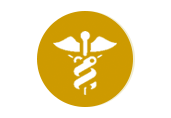
Schedule Your Evaluation (406) 414-5037
Most insurances accepted, including medicare
Office hours: M-Th 8am-5pm, Fr 8am-4pm
COVID-19 Information:
Bozeman Health is responding to the COVID-19 pandemic with the safety and health of all employees, medical staff, patients, and our community as our top priority. Click here for information on Bozeman Health COVID-19 resources.

BOZEMAN HEALTH VEIN & SURGICAL CLINIC
Healthy Legs...For Life
CHOOSING A CLINIC
What is important in a vein clinic and how do you decide where to go?
In the past decade there has been a steady proliferation of vein clinics throughout the country. In larger cities there are sometimes dozens of clinics to choose from. In Montana we have seen similar expansion on a smaller scale, but there is no question that the business of varicose vein treatment has become a competitive affair.
Marketing for medical products and services is common. Advertisements for medications, procedures, and hospitals can be found in practically all mass media. For vein clinics, advertising can sometimes be as confusing as it is helpful. How does one sort through the self proclaimed regional leaders, those who claim to do the most treatments, and everyone showing pictures of their ‘best’ results? Keeping in mind that the quality of marketing doesn’t always equate to the quality of care, how does one see through the smoke and mirrors and decide where to go?
When choosing a vein clinic we think it is helpful to consider the following:

Clinic Location and Staff
Is the clinic affiliated with a local hospital or medical center?
Who staffs the clinic?
Is the clinic community based or satellite center operated from another city or state?
Maintaining hospital affiliation requires confirmation of education and training and involves ongoing oversight to ensure safe and appropriate care of patients. For physicians providing care to a regional population, affiliation with a local hospital demonstrates a dedication to this privilege and a commitment to a high level of care. This is in contrast to clinics with no hospital affiliation that can operate with little oversight or regulation, all too often focusing more on a business model and less on providing quality community care. A telling sign for vein clinics that may not be invested in any community is the presence of multiple random franchised locations, staffed by physicians that rotate through or turn over quickly.
Bottom Line: Consider getting care from established providers who are affiliated with a local hospital and grounded in the community. Physicians with hospital privileges have resources and oversight that promote safe care of patients.

Medical Insurance
Does the clinic accept medical insurance and work with your insurance company?
Does the clinic ask you to pay up front and have you submit your claim to the insurance?
Most insurance plans have coverage for varicose vein treatment. There are, however, criteria and conditions which must be met before treatment can proceed. In our experience with thousands of claims we’ve learned it is essential to meet these criteria and obtain pre-authorization before proceeding with treatment. Failure to do so will result in a rejection of the claim – meaning you may be be responsible for the cost of your vein treatment. Working with insurance companies is labor intensive and, even for experienced offices, trying to reverse a rejected claim can be difficult or impossible.
Bottom Line: Good clinics accept most major insurance plans and spend the time to work with your insurance company on your behalf. This includes obtaining pre-authorization, submitting the claim, and dealing with any problems. If you have insurance you should not be paying cash for your procedures.

Medicare and Medicaid
Does the clinic accept Medicare or Medicaid?
Many clinics do not accept these insurance plans. The reason is simple – the reimbursements are far less than private insurance. Declining these plans is akin to saying ‘We don’t get paid enough to take care of you.’ Turning away these patients – many of who are disabled, elderly, or lower income - is inconsistent with the philosophy that medical care is a community service to which everyone is entitled.
Bottom Line: A vein clinic that doesn’t accept Medicare or Medicaid has decided that profit is more important than patient care. In Montana, where specialty medical centers are few, everyone should have access to quality varicose vein care regardless of their insurance.

Ultrasound Tests
Who performs the ultrasound exams? Are they qualified?
Is the ultrasound performed by the clinic that does the procedure?
An accurate ultrasound test is the single most important piece of information that directs varicose vein care. Ideally, this is done by a board certified radiologist or credentialed physician. Unfortunately, there is little oversight insuring that clinics that perform their own ultrasounds use modern equipment or have adequate training in ultrasound interpretation. In addition, clinics that perform their own ultrasounds have the potential to introduce bias in their results, with some even issuing bonuses for reporting 'abnormal' ultrasound findings. Inaccurate ultrasounds lead to under-treatment, unnecessary over-treatment, and is often the cause of unsatisfactory results.
Bottom Line: Choose a facility that uses a dedicated ultrasound staff, modern equipment, and physicians with the appropriate credentials and certification. Beware of clinics offering ‘free’ or ‘quick’ ultrasound exams – this is a common marketing gimmick and always an inadequate study. A thorough ultrasound exam should take 30-60 minutes per leg.
Montana Vein Clinic, the only regional clinic featuring:
-
Only local staff and physicians (over 8 decades of combined experience!)
-
Locally owned and operated
-
Affiliated with Bozeman Health Deaconess Hospital
-
State of the art vascular imaging center, advanced ultrasound equipment
-
Board-certified and fellowship trained radiologists
-
Most insurance accepted – including Medicare and Medicaid.
Excellence in Varicose Vein Care